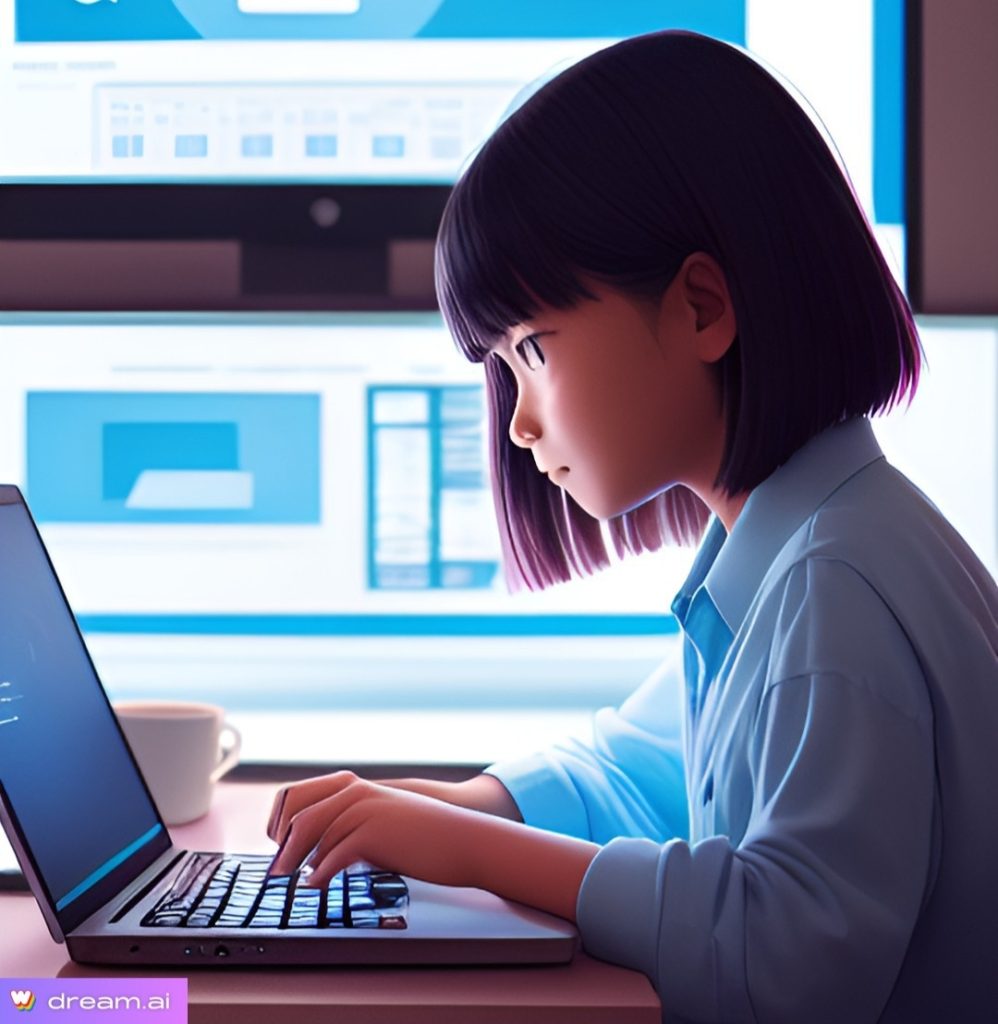
I regularly observe students having difficulty with developing ideas for writing. It seems to be a skill that is becoming lost amongst our rapidly changing culture. We don’t need to think about how to spell, because we have autocorrect and we don’t need to think about how to structure our sentences because we have text prediction features. More and more, technology is thinking for us.
In the early hours of the night, I was eagerly searching the internet for information about artificial intelligence and its use in creating literature. We can now type a command into the application and paragraphs of text will come from behind the pixels of the computer screen, as if it were human itself. This means we don’t have to write or illustrate books ourselves anymore. Artificial intelligence can do it for us. It thinks for us.
Developing ideas is a skill that you can find in the National Literacy Learning Progressions (ACARA). Throughout their years of primary and secondary education, students become increasingly skilled at developing more complex and elaborate ideas that even impact human emotion. As they learn about different topics, they consider how they can communicate that topic through a range of different texts.
Consider the topic of Uluru, an iconic landmark of Australia that simply has WOW factor. This landmark, its history and cultural significance form a main idea that can be communicated through informative, persuasive and imaginative texts. These days, we take a photo and post a comment on social media. Some might write a blog. Some may write a travel brochure because they want you to visit the place. Others may create children’s literature on The Dreaming.
Literacy is the ability to communicate effectively to an audience. Ideas are all around us. They are in our experiences and observations. They are in our conversations. It is essential that students develop the skill of developing ideas so that they can become effective communicators, not just in their local world, but globally. We need young people to be engaging in intellectual conversations and publishing intellectual content. This requires them to be inspired by ideas on a range of topics, even those beyond their own culture and world experience.
What I observe is that young people are increasingly focused on technology. This is also the case for adults. I personally have to make a conscious effort to reduce my time on social media. Young people are creating, developing and solving problems for hours upon hours in a digital world through gaming and are highly exposed to social media. They are limited in their world experience. Their communication remains centered on the main idea of gaming or technology and it becomes all they know and talk about. We need young people venturing out. Maybe as they venture out, the ideas they share in conversation will just begin to flow naturally.
An idea is simply something to talk about. It makes me wonder about young people’s ability to engage in a conversation. Can they contribute an idea that is related? Are they being allowed to engage with adults in their conversations? Are adults modelling intellectual conversations about a variety of topics?
Although it may seem like a great idea, I hesitate about introducing artificial intelligence to my repertoire of teaching tools. According to the National Literacy Learning Progressions (ACARA), my role is to guide young people toward developing ideas that emotionally and intellectually engage the audience. I want them to be critically analysing ideas, such as the one I am challenging right now. I want them to think for themselves.
I might be considered to be behind the times, as artificial intelligence is likely here to stay, but my concerns are real and my observations reveal to me that literacy skills are declining. Are we preparing young people to think for themselves? What problems will we face if they don’t?

HoTLaNe Australia is providing free tuition to educationally disadvantaged children and youth. I am travelling around the nation to make connections with schools and find those students in need of this service. Your financial contribution to this program is making a significant difference for young people.
Image: WOMBO Dream – AI Art Generator